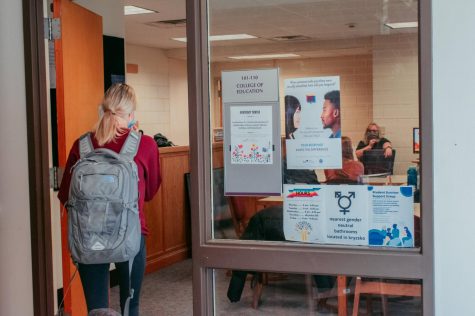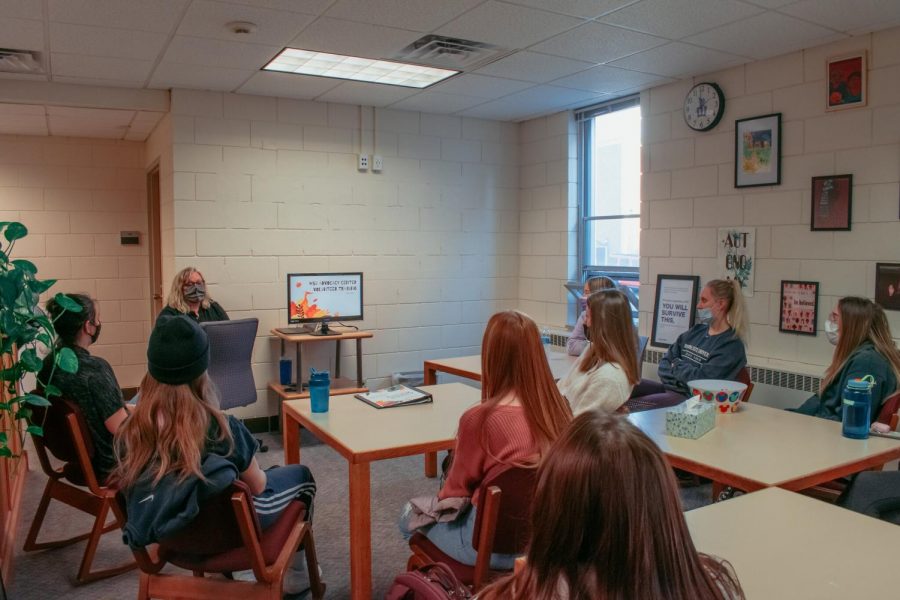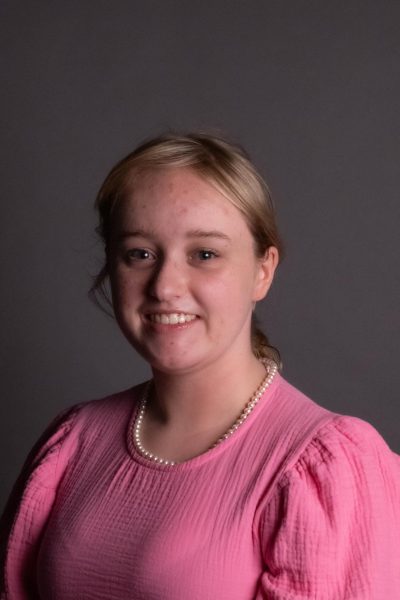Student Advocacy Center newly placed in Gildemeister Hall
Jessica Schulz, a confidential advocate was hired for students to discuss any harmful activity that was being done to them. According to the WSU website, “Jessica can provide support for WSU students who have been sexually assaulted, harassed, or violated in any way, are in an abusive relationship, are noticing some potential red flags in a relationship and want to discuss them with someone, know or fear they are being stalked, or have experienced or are experiencing racism, discrimination or other form of oppression.”
November 10, 2021
Winona State University recently approved and implemented an ‘Advocacy Center,’ now housed in Gildemeister Hall. This addition comes after the university officially hired Confidential Advocate Jessica Schulz this past summer, Schulz joining the Office of Equity and Inclusive Excellence team.
As a confidential advocate for victims of violence and discrimination, primarily focusing on sexual assault, stalking, dating and domestic violence and racism, discrimination and harassment, Schulz can help students explore what their options may be and begin to move forward.
Schulz created this space to allow for a more intimate and relaxed environment where students could feel safe sharing their experiences.
“We have had other spaces in places such as the IWC and Kryzsko Commons, but they haven’t been very private. This new space is meant to be a very warm and welcome space for students to not feel like all eyes are on them,” Schulz said.
Schulz also continued, saying the comfortability and safety that the new WSU Advocacy Center provides can help support the anonymity too.
“We don’t ask you your name or any of your information. The faculty there is trained to keep everything about you private but get you everything you need,” Schulz said.
Schulz also spoke on the different types of ways she can offer help to students. She explained that if students need counseling services, police reinforcement, etc., she would be able to help the student receive those services.
“As a confidential resource on campus, Jessica can help you explore your options without or before making an official report. When you meet with Jessica, she will listen without judgement, explain all of the options available to you and help you understand the potential outcomes of each option. After you decide which option is best for you, Jessica will provide guidance, resources and referrals,” Winona State’s official webpage states.
Some resources Schulz can help students with are on-campus counseling services, which provide crisis counseling sessions, ongoing mental health support and community referrals for long-term services, recommendation to Winona State Health Services which provide STI testing, emergency contraception or a physical exam by a SANE nurse to collect evidence in cases of sexual assault, a Title IX Coordinator which provides filing formal and informal complaints and campus accommodations due to violence or harassment, campus security services and more.
If Schulz is not available, the university still provides contact info for the Advocacy Center of Winona, a community resource.
“If you are in crisis and Jessica is unavailable, or you would feel more comfortable speaking to someone off-campus, please contact the Advocacy Center of Winona through their 24-hour hotline at 507.452.4453,” Winona State’s website states.

On Schulz’s Winona State web- page, definitions and further explanation are given, including terms like ‘stalking’.
The webpage also goes into the potential signs one could look for in a person they are uncomfortable with or growing wary of, such as receiving threats, persistent communication attempts, etc.
“Persistent communication such as phone calls, text messages, or emails, despite being told not to contact the victim in any form, waiting at or outside the victim’s workplace, residence, or school, making threats against someone, or that person’s family or friends, etc.,” the webpage states.
Winona State student Piper Zoller, studying mass communication: public relations, talked about her thoughts on the new WSU Advocacy Center and she thinks it could impact students.
“I’m glad that a place like this has opened up at WSU and is available to all students. I personally am someone who deals with issues internally, however, should the situation ever arise to need a place like this, I would feel safe going there,” Zoller said.
Zoller also mentioned other centers she hopes to see available in the future.
“I would like to see the organization advocating for acceptance around campus and making their voices known. I hadn’t heard that much about the Center before and they should really try and make themselves known around campus, so people know they are an option,” Zoller said.
Zoller also stated that although she feels comfortable at Winona State, she is pleased to hear that the WSU Advocacy Center is opening for the potential safety of herself and others.
While currently being called the WSU Advocacy Center, students and faculty were invited to vote on a new title for the space
on Monday, Nov. 8. There are several tables and a dozen chairs in the space’s main entrance with art prints hanging, a rainbow and Black Lives Matter flag and plants, although Schulz said they will continue to modify the space to student needs.
Schulz explained that although there was some backlash about the Advocacy Center being created on campus, overall, many were excited to see it happening.
“I was not the first person to come up with this idea; many others were thinking of starting this center way before me, I was just involved for the ride,” Schulz said.
Schulz explained why being an advocate is so important to her.
“We feel alone when we go through trauma. We feel like nobody is going to understand
or that we feel embarrassed. If I can create a space or be a person that isn’t scary for students to feel comfortable coming to, even if it’s just asking one question… I just want to be a part of that and that’s great,” Schulz said.














































